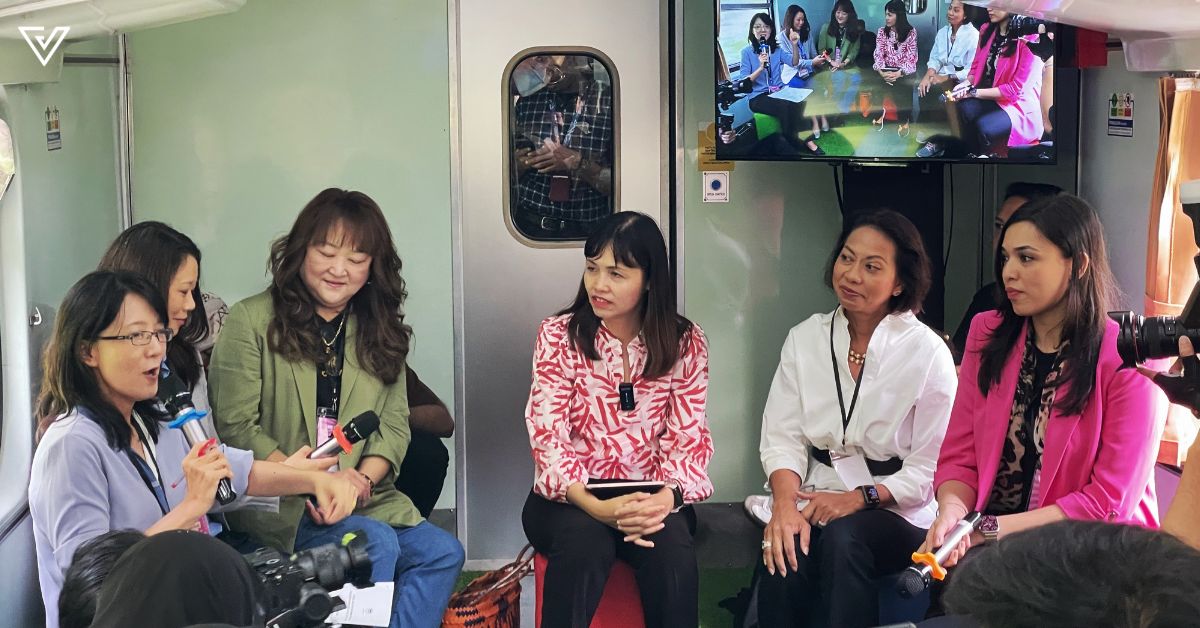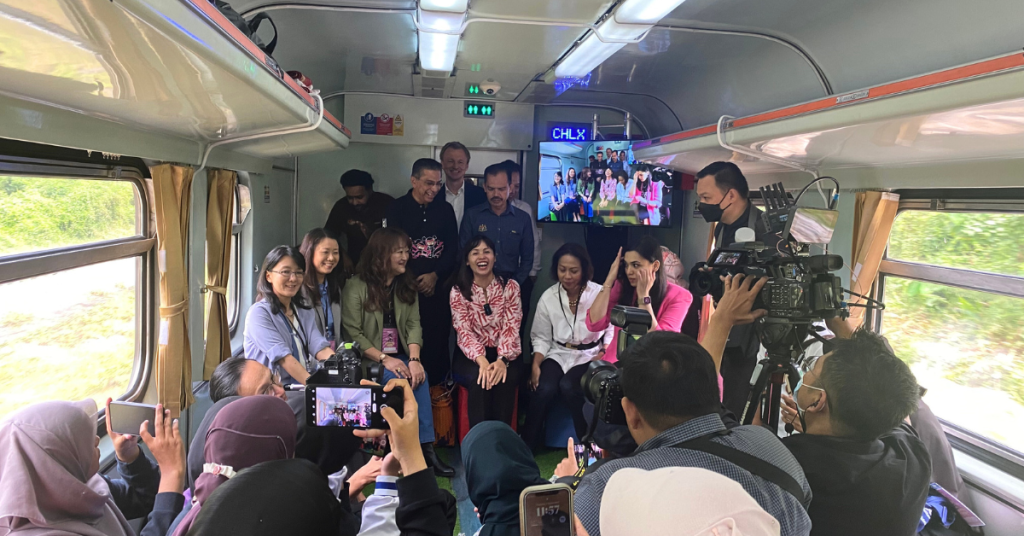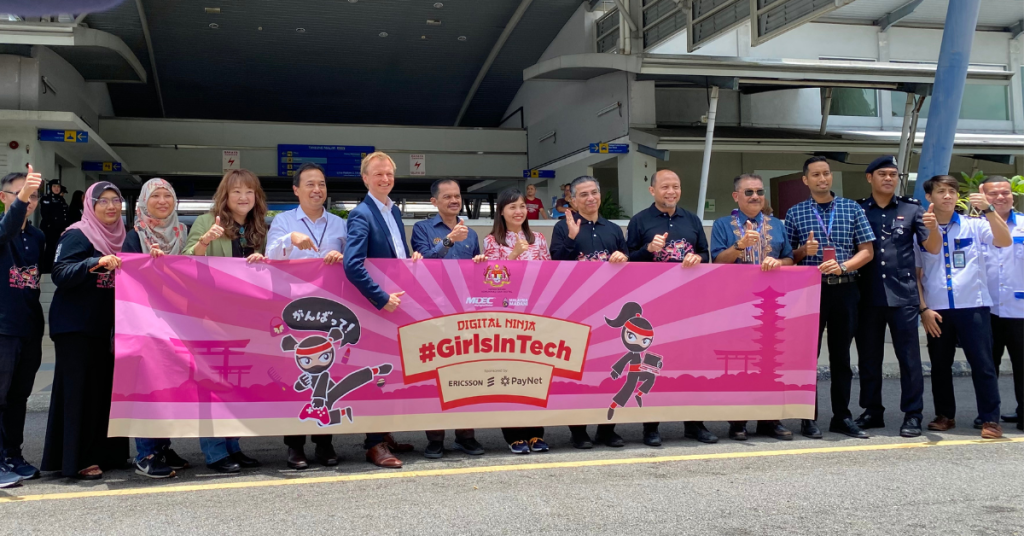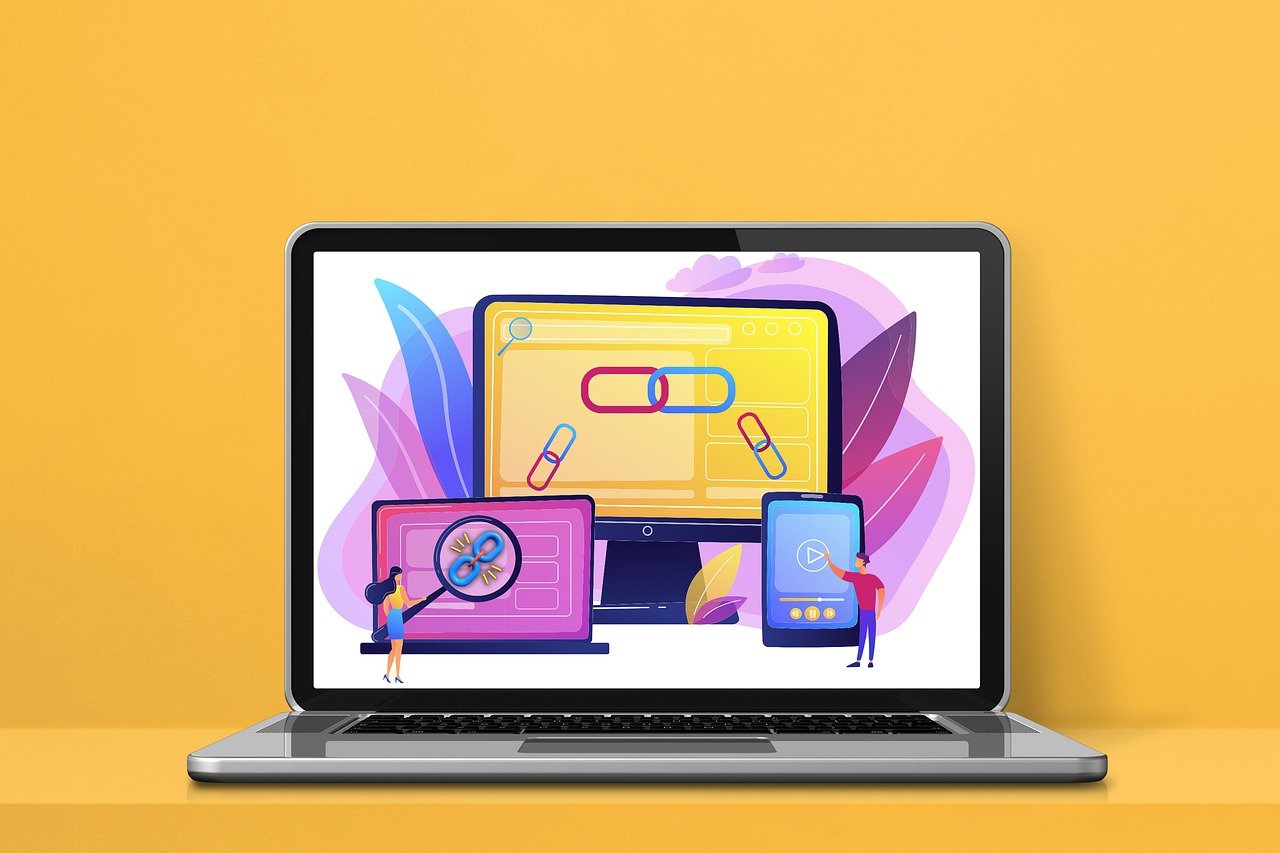4 less-talked-about career advice as shared by women industry leaders at MDEC’s #GirlsInTech
Here are 4 career advice for women given at the launch of MDEC’s #GirlsInTech programme from industry leaders in the STEM industry.

A few weeks back, Vulcan Post was invited to the launch of MDEC’s #GirlsInTech programme in conjunction with International Girls in ICT (GICT).
There, we were given the opportunity to join a Fireside Chat session featuring YB Teo Nie Ching, Deputy Minister of Communications and Digital, and women industry tech experts as panellists, specifically:
Ivy Kwan, VP and Key Account Manager at Ericsson Jun Maria Tan, Senior Director of Human Capital at PayNet Dr Sharlene Thiagaraja, CEO of TM Research and Development Izzana Salleh, Co-founder of Girls for GirlsThis session mainly served to inspire and motivate female students in attendance.
But alongside the words of encouragement, we noticed four interesting and noteworthy insights that probably aren’t really talked about enough:
1. Diversity should be embraced and not shied away from.
Sometimes, differences can lead to conflict. But on the flip side, differences can also fuel creativity.
Jun explained that when we have a diverse community, we actually have different kinds of ideas. “It’s not about who is better than the other, but about knowing each other.”
“It’s about embracing diversity, because with diversity all ideas come together. And we will become more advanced this way.”
 The Fireside Chat session happening in the KTM’s Chillax Coach
The Fireside Chat session happening in the KTM’s Chillax CoachYB Teo elaborated that although the programme is focusing on empowering girls (and women) in tech, the big picture that we’re moving towards is diversity.
She also noted that girls are still under-represented in STEM (science, technology, engineering, and mathematics), so women lack the opportunity to productively share our ideas.
One example she gave to emphasise this point is how during the national lockdown periods of the pandemic, there was not much news about childcare centres being reopened despite other sectors being allowed to operate again.
“For parents to go to work, we need childcare centres to be opened,” she stated.
But as only selected ministers were appointed to sit in matters concerning the nation at the time, there may have been a lack of consideration for this. So in this case, a diverse board might have helped provide a more comprehensive view of the situation.
2. Technology itself isn’t enough. It needs to be paired with social skills.
When talking about technology, we usually think of it as a function. And oftentimes this refers to a software routine that performs a task.
However, Jun elaborated that it’s a life skill. While the technical definition still applies, being in STEM also means bridging the gap between the software and its users.
For example, creating a technological solution isn’t enough. It’s also about sharing that solution with consumers in a manner that they understand.
“At PayNet, when we introduce tech to get people to embrace e-payment (such as FPX), our technology created the app. [But] the biggest challenge is to convince the public to use e-payment technology. That doesn’t need tech, that requires persuasion skills to build confidence in the public.”
Of course, she acknowledged that you have to understand the technology to share your creation with others, and she also emphasised on the need to understand consumers.
“If you want to make it in tech, your problem is not about [understanding] tech languages. You are supposed to find what are the life problems that need to be solved,” she stated.
So in essence, it goes beyond having the technical skills to also understanding how best to apply that knowledge.
 The launch of MDEC’s #GirlsInTech programme held at Kuala Lumpur KTM Station
The launch of MDEC’s #GirlsInTech programme held at Kuala Lumpur KTM Station3. “The man you marry is the most important career decision a woman will make.”
This may be a controversial food for thought, but Izzana mentioned that the person a woman chooses as their spouse (or life partner) happens to play a crucial role in her career.
While she’s not married herself, she explained that the person you share your life with does help to determine the direction of your life.
YB Teo shared her own experience as a parliamentarian. Her career has brought her around the country, moving from Selangor to Johor, then Putrajaya since 2008.
But fortunately for her, her husband was willing to make those transitions with her each time. Though she did acknowledge that his own occupation as a medical doctor made this easier, as it wasn’t too difficult for him to get the relocation transfer letter from the Ministry of Health (MoH).
“We need to believe that as men or women, we all have the same right to pursue our careers. My husband has never said that his career is more important therefore I should make the sacrifice for him. Instead, it’s the other way [around].”
This may sound more acceptable in this day and age, where equality and equity are constantly on people’s tongues.
But this wasn’t always the case. And there are still traditional views on how women should make these life-altering career decisions for their husbands, but not vice versa.
Hence, the core lesson shared here is to find a partner that’s supportive of your endeavours, otherwise you may have a hard time pursuing your goals.
4. Having representation in your chosen career field is necessary.
If you’ve noticed in recent years, people across the world have emphasised on the importance of representation.
And there’s a good reason for it.
The University of Toronto reported that numerous studies have concluded that when students don’t see people like themselves in the classroom, they have a more difficult time identifying with the industry and may feel like they don’t belong. Thus, reducing their chances of thriving.
As such, Izzana explained, “It’s important to be able to identify who your role model is. Because the majority of people find it hard to envision themselves in their dream role if they don’t have someone to look up to.”
“For example, YB Teo. What is YB’s background? What did she study? Who did she marry?”
If these aren’t taught at home, then she encouraged the students to look for a role model themselves. One that matches the values that are aligned with you or what you want in life.

“Where do you want to be? If you want to be an MP, look at a successful MP who is speaking about the things you want to as well when it’s your time,” she explained. “Having a role model is very important to be able to help you to shift your mindset.”
-//-
At the end of the Fireside Chat session, each of the panellists was asked to give one piece advice to keep ourselves futureproof since the world changes so fast:
Ivy: “Be very curious. When you see something, don’t just say ‘Ah, it’s a QR Code. Think beyond that. What’s behind the QR Code and how does it work? Be very curious and just keep learning.” Jun: “You cannot be complacent. Every time you know about what’s coming in your life, learn about it. So the trick to it is to know what is coming and be prepared for it.” YB Teo: “Critical thinking, I think that’s very important. Things have been done in this way but does it have to be this way all the while?” Dr Sharlene: “Continuous learning and don’t let anyone define your value. You decide your value.” Izzana: “Mine would be courage, so in whatever you do and whatever you feel you need to say. Even if your voice is shaking, even if your knees are shaking, say it and do it.”With these wise women leading the way in the tech industry, it’ll be interesting to see how many more women in STEM we’ll be seeing in the near future.
Learn more about Digital Ninja here. Read other articles we’ve written about Malaysia Digital Economy Corporation (MDEC) here.Featured Image Credit: Vulcan Post

 Lynk
Lynk 
































